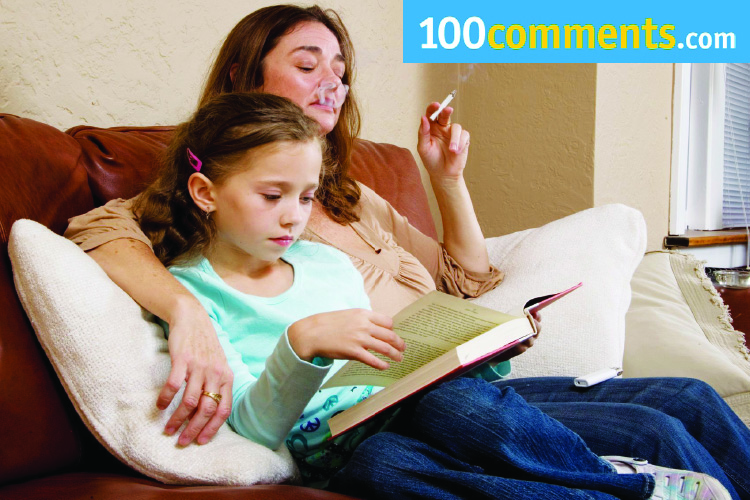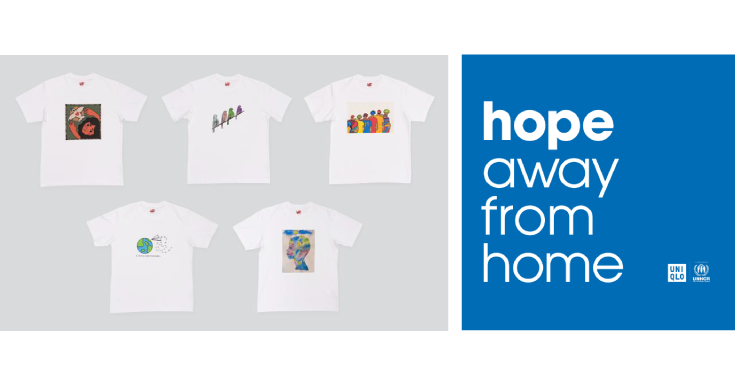Protect Your Child From Second-Hand Smoke
Did you know that children who are exposed to secondhand smoke are steadily taking in nicotine and other chemicals into their bodies just like smokers? Also, consider the fact that no amount of secondhand smoke is considered safe!
The smoke from a cigarette is known to contain around 4,000 chemicals, a number of which are known cancer causers, and is related to a range of illnesses such as asthma, chronic obstructive pulmonary disease, cancer, and heart disease. Unless your family spends most of their time in a smoke-free environment, it can be a challenge to try and protect children from exposure to the secondhand smoke produced by smokers. Still, there is no excuse to not try!
Table of Contents
First and foremost, quit smoking!
Apart from the obvious fact that it’s damaging to your own health, the smoke tends to linger in the air, your clothes and your furniture too. As soon as you light up, it will leave behind a residue which can also negatively impact the health of your children.
Smoking is a challenging addiction to give up but if you’re serious about taking charge of your health, there are resources available, which can help guide you through the process. Since January 2007, the Ministry of Health Malaysia has provided a hotline service to aid smokers in giving up their habit. This hotline is known as Infoline Berhenti Merokok at 03-88834400. It operates daily during working hours. Infoline Berhenti Merokok is hosted by the Health Education Division of the Ministry of Health Malaysia. Services provided: Advice on how to quit smoking; Tips to quit smoking; and Quit Smoking Clinic. Operating Hours: 8.00 a.m. – 5.00 p.m. Mondays to Fridays (working days only).
Children who live with smokers are more likely to develop:
- asthma
- bronchitis
- pneumonia
- colds
- coughing/wheezing
- sore throats
- ear infections
- eye irritation
- allergies
Help other family members quit too
If there are any other smokers who spend a lot of time around your children, try to help them stop smoking too. Although quitting a habit such as smoking is a personal choice, you may be able to persuade them to quit, especially if they already know the dangers of smoking to their own health and to others.
Try explaining to them about the harmful carcinogens that your children are being exposed to by their habit. Don’t forget to emphasise on the personal benefits they will enjoy as a result of quitting too! Lastly, offer as much emotional support as possible to help them quit the habit.
Keep a cigarette-free home
Your home is where your family lives in so you have every right to forbid smoking in your house, especially if you’re serious about your children’s health. As troublesome or sensitive as it can get, you will have to start somewhere. One way is to make a polite, casual announcement in Facebook, for example, that you wish to take the wellbeing of your family seriously and request that family members and friends who visit your home from now on refrain from lighting up inside the house.
Be aware of where you take your child
You may be able to control the situation in your own home, but it’s not quite possible to do the same when you bring your child to public places. Nevertheless, it’s still just as important to try and limit their exposure to secondhand smoke as much as possible.
Firstly, identify the places that do not ban smoking in their premises and as long as you can help it, avoid frequenting those places with your child. After all, there are plenty of other places, such as certain restaurants, playgrounds, parks, etc, that operate on a no-smoking policy.
Avoid theaters, entertainment venues, and anywhere that smokers are likely to feel comfortable lighting up. If you happen to be in a restaurant which allows smoking, keep your children away from the tables of smokers.
It’s a tough call, but…
…someone has to do it!
Sometimes, you will just have to take the time and effort to explain to the smokers in your life that while you value their presence in your life and your children’s lives, you cannot allow them to smoke around your children, and that your children will not be allowed to be around them while they are smoking. Help them understand how they are putting everyone around them at risk when they smoke, particularly children, who are still developing. Do your best to be firm, but also respectful when executing this message and hope for the best.
Educate your children about smoking and secondhand smoke
Merely informing your child that smoking and secondhand smoke are bad or dangerous does not help them understand exactly why they should not do it. Instead, try explaining to them the different ways that smoking and secondhand smoke can harm the body. You may also use examples to back up your points. If you tell them that smoking is bad for their lungs, you might consider showing them a picture of a smoker’s lungs.
Be clear that while choosing not to smoke is the most important thing they can do, avoiding secondhand smoke is also important for avoiding negative health effects. Point out, for example, that even secondhand smoke exposure can lead to lung cancer.
As a parent, you will always have the best intentions at heart when it comes to your child’s health, but it will not always be possible to shield him or her from the habits of other people. You’d have a much better chance though, if they fully understood the ramifications of secondhand smoke, as well as smoking itself, of course.
While talking to your child would work, especially if you happen to have good communication between you both, there are also alternative methods which can help you along. Search for youtube videos which might help your children understand the dangers of smoking and secondhand smoke. Here is one such video worth your child’s attention: www.youtube.com/watch?v=fF7SNcw7kxQ
What’s the school doing?
Is your child’s school taking steps to teach them about the effects of smoking and secondhand smoke? Most schools do have some sort of anti-smoking program, but some programs may be less developed than others. Ask your child’s teacher what the school’s program involves, and whether or not they include education about secondhand smoke in their program. If you are not satisfied with the current program, suggest ways it can be improved, or better still, ask if you can help.
Peer pressure to smoke
Peer pressure in school may cause a child to cave in to do a lot of things they might not necessarily want to. Though it may be true that much of the pressure a child feels comes from their own minds, they may also, at some point, be pressured by someone else to try a cigarette or other tobacco product. Preparing them for this possibility will help them say “no’ if the need arises.





















Leave a comment